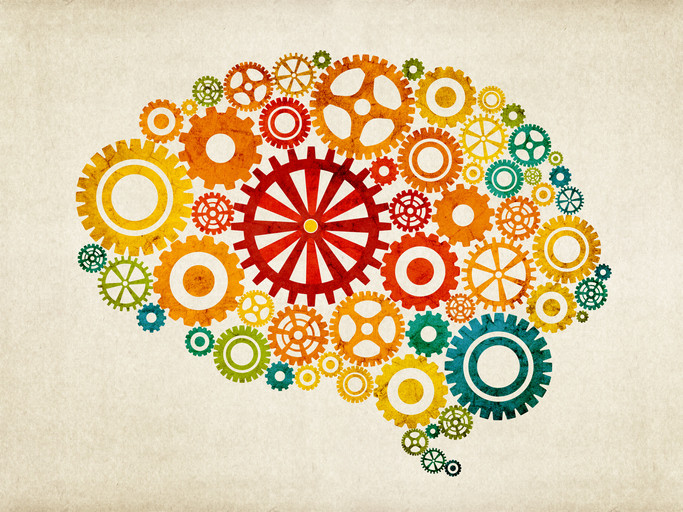Didn't your competent? doctor start prescribing multivitamins years ago? So you don't have a competent doctor, do you? Ask your doctor what competence means to them. I bet you'll get excuses about treating the brain is hard.
multivitamin (7 posts to May 2015)
Do you prefer your doctor incompetence NOT KNOWING? OR NOT DOING?
Can a multivitamin keep your brain healthy?
A new study suggests that a daily multivitamin might improve memory in older adults.
By Robert H. Shmerling, MD, Senior Faculty Editor, Harvard Health Publishing; Editorial Advisory Board Member, Harvard Health Publishing

Millions of people take a multivitamin each day. Some believe it's a sort of insurance in case their diet is missing some essential nutrient. Others believe it will ward off disease by boosting immunity, improving brain health, or regulating metabolism. It's easy to see where these ideas come from: ads tout wide-ranging health benefits, even though most offer little or no evidence to back up the claims.
But research on the health benefits of multivitamins has been mixed at best. This year, for example, the US Preventive Services Task Force, a leading authority on preventive healthcare, reviewed 90 of the best available studies on supplements and vitamins, concluding the products didn't protect healthy adults lacking nutritional deficits against cardiovascular disease, cancer, or death from all causes.
Might research on different doses, supplement combinations, or populations prompt a different conclusion? Well, yes — in fact, that may have already happened, according to a new study that focused on memory and brain function.
Can a daily multivitamin improve brain function in older adults?
Our current options for improving brain health are limited. For example, regular exercise, optimal weight, and a heart-healthy diet can improve cardiovascular health and lower the chances of certain types of dementia, such as dementia due to strokes. Beyond such common-sense measures, no available medicines, supplements, or treatments reliably improve brain function over the long term, despite advertisements claiming otherwise.
That's why researchers continue to explore whether certain foods or supplements could prove effective. In a recent study published in Alzheimer's and Dementia, more than 2,200 volunteers ages 65 and older were randomly assigned to receive cocoa or a placebo, a multivitamin or a placebo, or both cocoa and a multivitamin for three years. The multivitamin chosen for this study was Centrum Silver, which contains 27 vitamins, minerals, and other nutrients in various amounts.
When tests of cognition were analyzed at the end of the trial, those receiving cocoa did not demonstrate any improvement. But those assigned to take a multivitamin had improved scores on tests of
- overall brain function (especially in people with cardiovascular disease)
- memory
- executive function (tasks such as planning ahead or remembering instructions).
Based on these findings, the researchers estimated that three years of multivitamin use could slow age-related decline in brain function by as much as 60%.
Notably, study participants were mostly white (89%), had an average age of 73, and more than half were female (60%). They were followed for only three years. However, it was a randomized, double-blind trial, which is considered the most powerful study design.
Protect yourself from the damage of chronic inflammation.
Should we all be taking multivitamins?
This study alone isn't enough to suggest routine use of multivitamins for people of all ages. It may turn out that the benefits for older adults seen in this study were due to deficiencies in certain nutrients among some of the study participants. We don't know if this is true because it wasn't part of the study.
Or we might learn that the benefits reported here are too small to make much difference in real life, or wane over time, or have no effect on preventing common types of dementia. And it's hard to ignore an earlier randomized, placebo-controlled trial that was actually larger and longer-term: it found no improvement in brain function among male physicians ages 65 and older taking multivitamins.
But it does mean that more study is warranted. We need to understand who is most likely to benefit from multivitamin use, what dose is optimal, and what parts of the multivitamin are most important. We also need trials that are larger, last longer, and include a more diverse group of participants. And certainly, there's a difference between improving cognitive function and preventing dementia. We still need to know if conditions like Alzheimer's disease can be prevented by multivitamin use or other supplements.
The bottom line
Claims that certain supplements can improve brain health are everywhere you look. But sound scientific evidence backing up those claims is much rarer. That's one reason this new study is important: if confirmed, it means that a safe, widely available, and inexpensive vitamin supplement could improve quality of life for many millions of aging people.
In the past, claims made by the makers of various supplements and vitamins have gotten far ahead of the science. Studies like this one should help science catch up and sort out which claims are valid.
About the Author

Robert H. Shmerling, MD, Senior Faculty Editor, Harvard Health Publishing; Editorial Advisory Board Member, Harvard Health Publishing

No comments:
Post a Comment